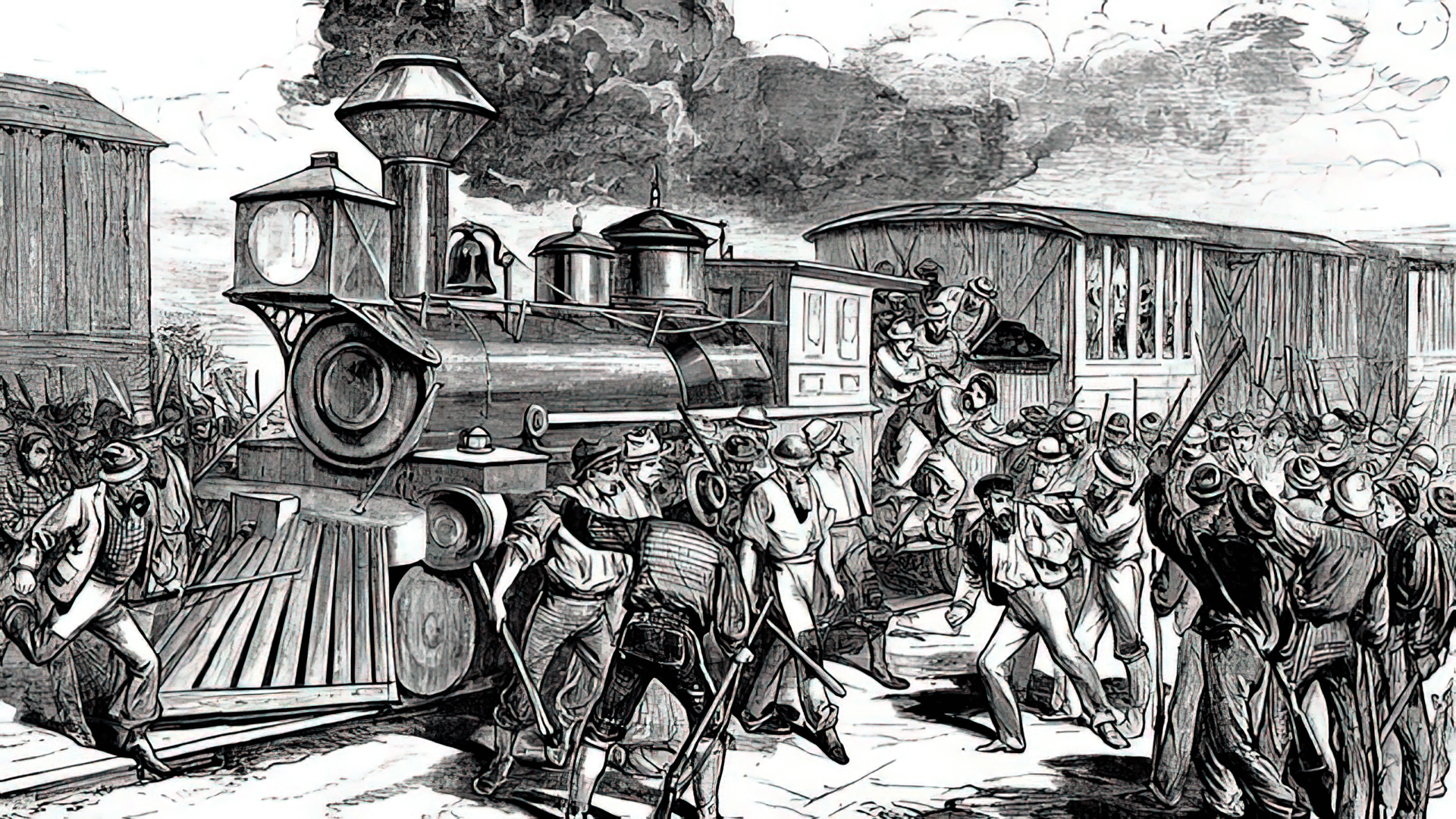African American History
Reading Du Bois’s Black Reconstruction
Online: Zoom link will be provided to registered participantsA close reading over 10 weeks of W.E.B. Du Bois's classic work, Black Reconstruction, with Sean Ahern. The book provides a basis for a much overdue revolution in US labor history. As Du Bois so eloquently and bluntly put in in 1935: “The South, after the war, presented the greatest opportunity for a real national labor movement which the nation ever saw or is likely to see again for many decades. Yet, the labor movement, with but few exceptions, never realized the situation. It never had the intelligence or knowledge, as a whole, to see in black slavery and Reconstruction, the kernel and meaning of the labor movement in the United States.”
‘The Man Who Changed Colors’
Video available on YouTubeVideo available at https://youtu.be/ABOczzUs8nQ
Bill Fletcher Jr's 'The Man Who Changed Colors' delves into the complicated relationships between Cape Verdean Americans and African Americans, Portuguese fascist gangs, and abusive shipyard working conditions. When a dockworker falls to his death under strange circumstances, investigative journalist David Gomes is on the case. His dogged pursuit of the truth puts his life in danger and upends the scrappy Cape Cod newspaper he works for.
Reading Du Bois’s Black Reconstruction
Online: Zoom link will be provided to registered participantsA close reading over 10 weeks of W.E.B. Du Bois's classic work, Black Reconstruction, with Sean Ahern. The book provides a basis for a much overdue revolution in US labor history. As Du Bois so eloquently and bluntly put in in 1935: “The South, after the war, presented the greatest opportunity for a real national labor movement which the nation ever saw or is likely to see again for many decades. Yet, the labor movement, with but few exceptions, never realized the situation. It never had the intelligence or knowledge, as a whole, to see in black slavery and Reconstruction, the kernel and meaning of the labor movement in the United States.”
Reading Du Bois’s Black Reconstruction
Online: Zoom link will be provided to registered participantsA close reading over 10 weeks of W.E.B. Du Bois's classic work, Black Reconstruction, with Sean Ahern. The book provides a basis for a much overdue revolution in US labor history. As Du Bois so eloquently and bluntly put in in 1935: “The South, after the war, presented the greatest opportunity for a real national labor movement which the nation ever saw or is likely to see again for many decades. Yet, the labor movement, with but few exceptions, never realized the situation. It never had the intelligence or knowledge, as a whole, to see in black slavery and Reconstruction, the kernel and meaning of the labor movement in the United States.”
Reading Du Bois’s Black Reconstruction
Online: Zoom link will be provided to registered participantsA close reading over 10 weeks of W.E.B. Du Bois's classic work, Black Reconstruction, with Sean Ahern. The book provides a basis for a much overdue revolution in US labor history. As Du Bois so eloquently and bluntly put in in 1935: “The South, after the war, presented the greatest opportunity for a real national labor movement which the nation ever saw or is likely to see again for many decades. Yet, the labor movement, with but few exceptions, never realized the situation. It never had the intelligence or knowledge, as a whole, to see in black slavery and Reconstruction, the kernel and meaning of the labor movement in the United States.”
Summertime … and the Living Ain’t Easy: Black Noir
Online: Zoom link will be provided to registered participantsThe Marxist Education Project's Literature Group continues its summertime tradition of reading noir fiction: the popular American crime genre that explores the corruption of society - and, in our selected books by Chester Himes, Walter Mosley, Attica Locke, and Bill Fletcher Jr. - corruption in the workplace, in unions, and among workers.
Summertime … and the Living Ain’t Easy: Black Noir
Online: Zoom link will be provided to registered participantsThe Marxist Education Project's Literature Group continues its summertime tradition of reading noir fiction: the popular American crime genre that explores the corruption of society - and, in our selected books by Chester Himes, Walter Mosley, Attica Locke, and Bill Fletcher Jr. - corruption in the workplace, in unions, and among workers.
Summertime … and the Living Ain’t Easy: Black Noir
Online: Zoom link will be provided to registered participantsThe Marxist Education Project's Literature Group continues its summertime tradition of reading noir fiction: the popular American crime genre that explores the corruption of society - and, in our selected books by Chester Himes, Walter Mosley, Attica Locke, and Bill Fletcher Jr. - corruption in the workplace, in unions, and among workers.
Summertime … and the Living Ain’t Easy: Black Noir
Online: Zoom link will be provided to registered participantsThe Marxist Education Project's Literature Group continues its summertime tradition of reading noir fiction: the popular American crime genre that explores the corruption of society - and, in our selected books by Chester Himes, Walter Mosley, Attica Locke, and Bill Fletcher Jr. - corruption in the workplace, in unions, and among workers.
Summertime … and the Living Ain’t Easy: Black Noir
Online: Zoom link will be provided to registered participantsThe Marxist Education Project's Literature Group continues its summertime tradition of reading noir fiction: the popular American crime genre that explores the corruption of society - and, in our selected books by Chester Himes, Walter Mosley, Attica Locke, and Bill Fletcher Jr. - corruption in the workplace, in unions, and among workers.
Summertime … and the Living Ain’t Easy: Black Noir
Online: Zoom link will be provided to registered participantsThe Marxist Education Project's Literature Group continues its summertime tradition of reading noir fiction: the popular American crime genre that explores the corruption of society - and, in our selected books by Chester Himes, Walter Mosley, Attica Locke, and Bill Fletcher Jr. - corruption in the workplace, in unions, and among workers.
Summertime … and the Living Ain’t Easy: Black Noir
Online: Zoom link will be provided to registered participantsThe Marxist Education Project's Literature Group continues its summertime tradition of reading noir fiction: the popular American crime genre that explores the corruption of society - and, in our selected books by Chester Himes, Walter Mosley, Attica Locke, and Bill Fletcher Jr. - corruption in the workplace, in unions, and among workers.
Summertime … and the Living Ain’t Easy: Black Noir
Online: Zoom link will be provided to registered participantsThe Marxist Education Project's Literature Group continues its summertime tradition of reading noir fiction: the popular American crime genre that explores the corruption of society - and, in our selected books by Chester Himes, Walter Mosley, Attica Locke, and Bill Fletcher Jr. - corruption in the workplace, in unions, and among workers.
Summertime … and the Living Ain’t Easy: Black Noir
Online: Zoom link will be provided to registered participantsThe Marxist Education Project's Literature Group continues its summertime tradition of reading noir fiction: the popular American crime genre that explores the corruption of society - and, in our selected books by Chester Himes, Walter Mosley, Attica Locke, and Bill Fletcher Jr. - corruption in the workplace, in unions, and among workers.
Theodore Allen’s ‘The Kernel and Meaning’: A Strategic Critique of U.S. Labor History
Online: Zoom link will be provided to registered participantsBefore Theodore W. Allen turned to his magnum opus, The Invention of the White Race, he drafted an essay "The Kernel and Meaning: A Contribution to a Proletarian Critique of U.S. Historiography." In it, he assessed how the industrial bourgeoisie successfully overturned plantation capital's rule while assuring its own ascendancy over the proletariat. Allen reviewed six commonly held explanations as to why, despite favorable objective conditions, the U.S. left and workers movements failed to establish socialism or even a permanent working-class party. Participants in this group will read and discuss the original, 160-page typescript of Allen's unpublished essay.


